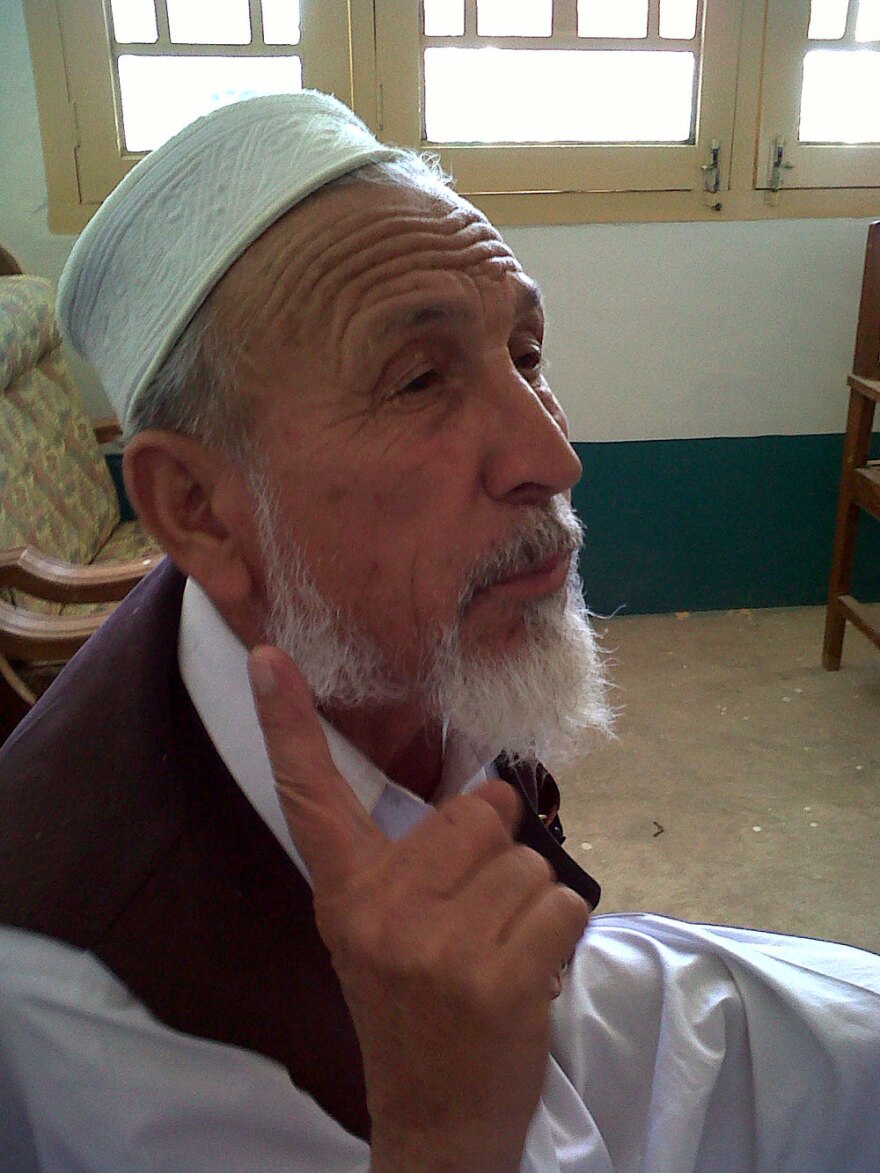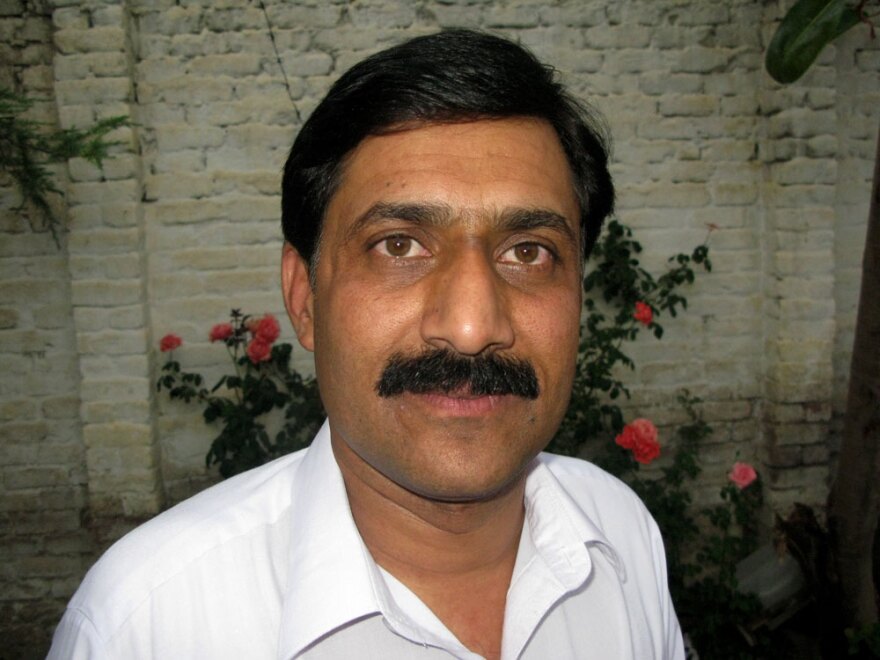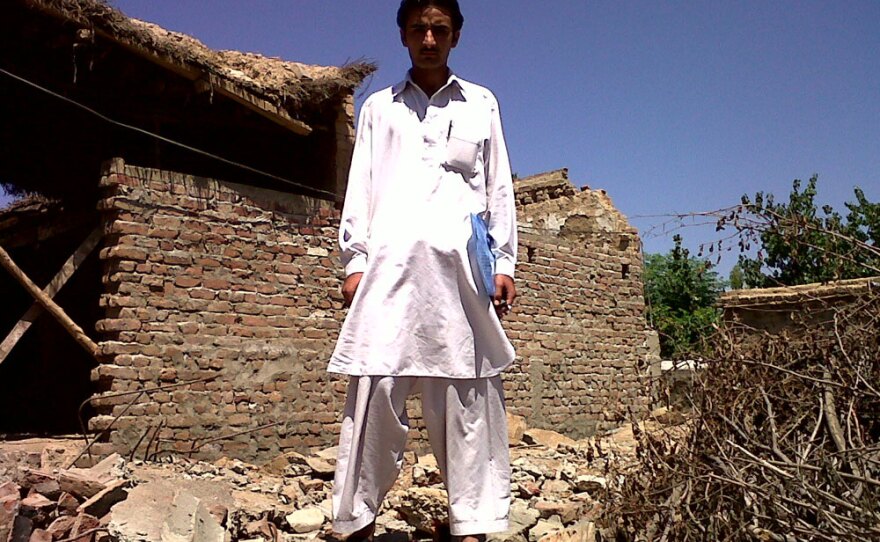Last year in Pakistan's Swat Valley, the Taliban hunted down residents whom the militants said violated their strict interpretation of Islam. Now, a year after a Pakistan army offensive dislodged the Taliban, it is the citizens of Swat Valley who are taking the law into their own hands.
With the help of the army, residents are targeting the families of known militants, subjecting them to harsh treatment.
On a recent day, Sami Ullah opens the latch on the front door of his family house on the outskirts of Mingora, the main city in Swat Valley. But when he swings the door open, there is no house — only rubble and dust. The house appears to have been smashed into the earth so that broken slabs of what was once the roof are only three feet above the ground.
He now sleeps in a room where the family stabled their one cow and a calf, across the alleyway from his ruined house.
"I don't want to visit this place again and again, because once I see it my feelings are that of grief. And it is pushing me toward mental disturbance," he says.
The 19-year-old engineering student blames the Pakistani army for demolishing his home as a form of collective punishment for having a relative who joined the Taliban.
Ullah admits that his older brother, Raffi, ran off with the militants three years ago, but he says his father disowned the brother in 2007. Ullah fingers a worn document officially stating so.
He says uniformed army personnel showed up May 20 and said the family had to vacate the premises; the next day, they were taken to a camp outside Swat where other banished families are now living. Ullah says an army representative dismissed his father's signed statement disowning his militant son.

"He said these documents are not going to be of any help to you because now you have been moved to the camp, and you will not come back from the camp unless and until you bring your brother and he surrenders to the army," he says.
Ullah has been released from the camp for exams and says he reports daily to the army.
Army Denies Involvement
The army spokesman in Swat denies that the military demolished Ullah's or anyone else's home in a zeal to root out militant sympathizers. Maj. Mushtaq Khan suggests it was locals looking to avenge their losses under the Taliban's brief but brutal rule.
"Might be some civil people, might be the people of those villages who have destroyed their houses. But they are not army; the army don't do it," he says.
Khan also said the army does not decide whom to expel. He says that decision is a local matter, determined by community elders at a jirga, or assembly, in accordance with ethnic Pashtun culture and its consensus decision-making.
To the extent the army helps to remove people elders say should go, Khan says it's for their own protection. He says that when the army comes to shift a family and transport their luggage, it is a "humanitarian gesture" that the army is providing to the people.
Inam Rehman heads the local citizens' council that recently banished Sami Ullah's family and 34 other families on suspicion of being informants for the Taliban. Rehman says four of his closest friends have been killed in the past two months in attacks that suggest the work of Taliban "remnants" in the area.
He says it was difficult to banish longtime neighbors, but the council acted in self-defense.
"The reason was that people were very, very angry, especially when the targeted killings started. We just expelled these limited number of families so that it would serve as an example," Rehman says, adding that the families are "just temporarily banished."
Collective Punishment Undermines Law And Order

Human rights advocate Zia Uddin Yousafzai says the tactic undermines the very law and order that last summer's army offensive was designed to restore.
"It is against morality, against humanity and against the norms of the ... state," he says. He calls groups like the jirga that banished Ullah's family little more than "rubber stamps" for the army.
"This policy was made by the army. Had there been an independent stance of the jirga, they might have been rational about it ... and questioned it — 'Why are you expelling the whole family?' " he says.
Amnesty International Asia-Pacific Director Sam Zarifi says Swat's ad hoc law enforcers, in concert with the government, are acting without any judicial process.
"Collective punishment in which you destroy a community, destroy a family because of the alleged actions of a member of the family, is a violation of obviously the most basic kind of human rights, which is that individuals have rights in and of themselves," he says.
Zarifi says the policy of collectively punishing families is also fanning a culture of reprisals.
"Because what we see is that these peace jirga in many cases are simply carrying out old vendettas, old feuds," he says.
Meanwhile, Ullah returned to Swat Valley on Monday from Karachi, where he was searching for his militant brother. He said the army urged him to go look there and told him to bring his brother back, "dead or alive."
Copyright 2023 NPR. To see more, visit https://www.npr.org. 9(MDM3NjYwMjA5MDE1MjA1MzQ1NDk1N2ZmZQ004))



